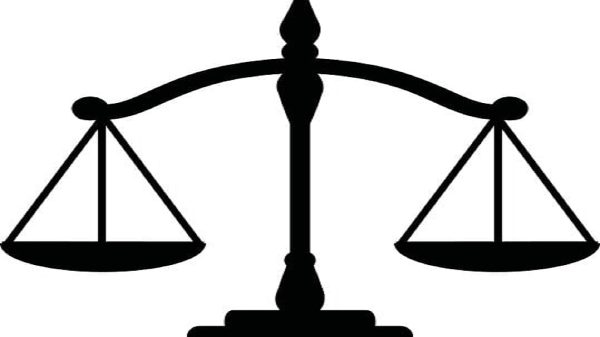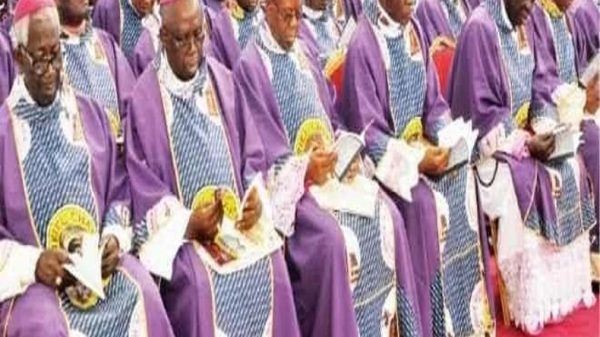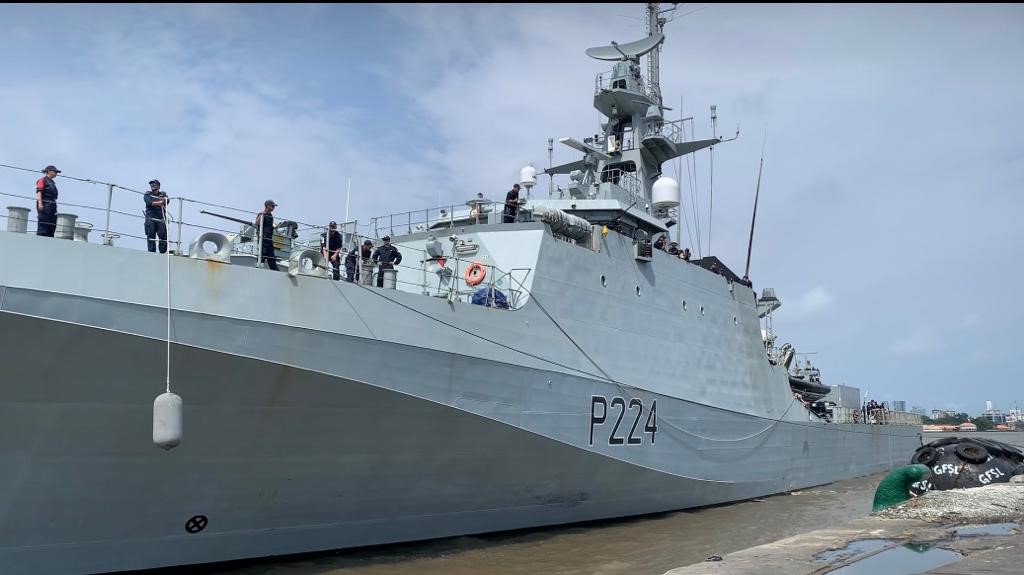Royal Navy warship – HMS Trent – has arrived in Lagos on Sunday 10th of September. This is Trent’s second visit to Nigeria, as part of its regional mission to aid allies and partners in driving down illegal activities including piracy and illicit trafficking. The visit will help deliver capacity training and support maritime security in the region.
HMS Trent departed Gibraltar carrying an expert boarding team of UK Royal Marines and a Puma surveillance drone. HMS Trent’s mission is to support West African allies helping countries to develop capability to fight illegal crimes at sea and ensure they can play an effective role in bringing stability to wider West Africa.
With around £6 billion of UK trade passing through the region, part of Trent’s tasking is to support stability across the Gulf of Guinea through training to help partner navies take the fight to criminal actors, fostering ties and sharing knowledge, whilst conducting patrols to increase security.
HMS Trent’s Commanding Officer, Commander Tim Langford, said: “It is an honour for HMS TRENT to return to Nigeria, an important visit on the Ship’s three month deployment to West Africa. We are excited to work with our partner nations as we strive for a long term solution to maritime insecurity across the region”.
“The Royal Navy has a long history of engagement within the region and an enduring partnership with the Armed Forces of Nigeria. My team are really looking forward to the opportunity to work with their Nigerian counterparts and build on the relationships established when we visited Lagos in 2021.”
UK Deputy High Commissioner in Lagos, Jonny Baxter said: “This deployment demonstrates how a truly Global Britain is stepping up on the world stage to tackle shared international security challenges.
“Nigeria is an important and valued defence partner for the UK in West Africa. Our two countries face many shared threats and we are keen to work with Nigeria to defeat these and to help improve maritime security in the Gulf of Guinea.”
The deployment contributes to a wider international effort by the Friends of the Gulf of Guinea (FOGG) which supports Gulf of Guinea nations to implement regional maritime security frameworks, bringing stability to a region that has seen international shipping disrupted, seafarers’ lives put in danger, and damage caused to local economies.
![]()




























































